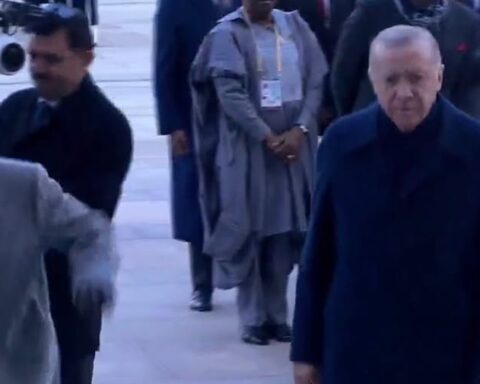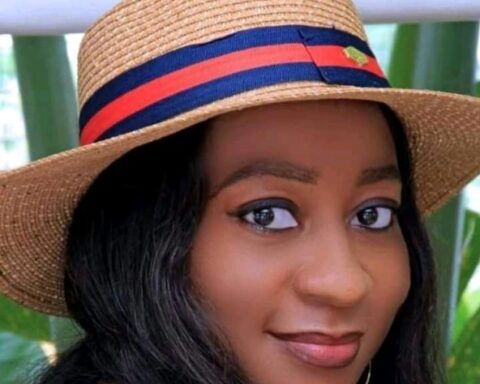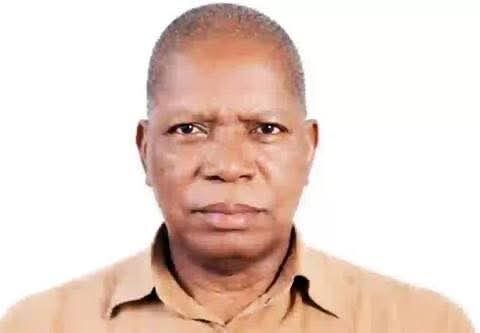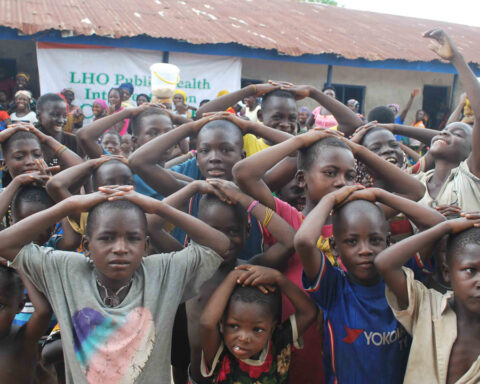“Not having ambassadors representing its interests a year after recalling the previous ones means Nigeria is retreating from the world…” Sheriff Folarin, Texas State University, USA
By FELIX OGUEJIOFOR ABUGU
Three economists – Daron Acemoglu, Simon Johnson and James A. Robinson – won the 2024 Nobel Prize in economics for their works that explain why “societies with a poor rule of law and institutions that exploit the population do not generate growth or change for the better.” In other words, they won the 2024 prestigious prize in economics for explaining how democratic governance also promotes socio-economic growth better than other systems.
The current Nigerian democratic dispensation has existed for 25 years – from 1999 to date. Because of its inherent strength and the consequential importance the world attaches to democracy as a system that promotes inclusive prosperity, rule of law, human freedom and dignity, Nigeria as Africa’s largest democracy and the world’s 5th – after India, the United States, Indonesia and Pakistan – should be basking in the adulation of the world – feted for its democracy-assisted development and progress, anchored on the rule of law, freedom, liberty and emerging strong governance institutions as well.
But that is not the case. Instead, Nigeria has become a lumbering giant derided around the world for its uninspiring democratic credentials – election-rigging and related violence; ballot-box snatching and burning; corrupt, pay-as-you judiciary; avaricious, ostentatious and under-performing legislature; corrupt and sectionalized security agencies and an incompetent, unpatriotic and irredeemably corrupt ruling elite, among others. That is, thanks to the social media, how our weak governance institutions are ruinously manipulated by political leadership is constantly beamed to international conference rooms and living rooms of world leaders, thereby giving the world ample evidence not to respect us.
To demonstrate this scant regard for us by the rest of the world, consider the recent election into the United Nations Human Rights Council. Although the presidency has denied that the country participated in the election, it is still hard to imagine that only three nations could cast their votes for Nigeria in error. But, we do know that the UN system is so well organized that no member nation would cast a vote for another member not standing for an election. So, how could Nigeria have garnered three stray votes if it did not stand for the Human Rights Council election?
But no matter. According to reports, Nigeria received only three votes in its bid to join the Human Rights Council to Ghana’s 179 and Burundi’s 168. Malawi and Cote d’Ivoire had earlier garnered 181 and 182 votes apiece to be reelected for a second term. A ‘nay’ vote for the nation’s human rights records, you would say.
We haven’t always had this low ranking as a member of the international community. Indeed, hitherto, even though we nicknamed ourselves the ‘Giant of Africa’, Nigeria had actually acted as one in several instances. Easily the most audacious and widely acclaimed international diplomatic engagement by Nigeria was its organisation, funding and leadership, in the early 90’s, of the ECOWAS Monitoring Group (ECOMOG), a sub-regional force that stopped two brutal wars in Liberia and Sierra Leone. ECOMOG became the first of such force to be organized in an African sub-region and was so impactful that even stronger militaries like those of the United States and Britain frequently interfaced with the Nigerian military to share experiences in peace-keeping operations, especially in Africa. Nigerian generals became highly sought-after to head peace-keeping operations around the world.
Before then, Nigeria had been the driving force behind the anti-Apartheid struggle in South Africa, funding both covert and overt military and diplomatic operations by by ANC nationalists and other an-Apartheid freedom fighters against Apartheid and Western imperialism in Southern Africa. It, thus, came as no surprise to many that the first country to be visited by Nelson Mandela, the late first president of free South Africa, after his release from prison and election as president, was Nigeria.
Nigeria was so influential at a time, and acted truly as the giant of Africa, that it would simply cut off relations with any country seen to be working against African interest in the international system. Nigeria made Africa the center-piece of its foreign policy, to the admiration of the world.
While it could be argued that those were the glorious years of Nigeria’s activist international diplomacy driven by military audacity, the point must also be made that under President Olusegun Obasanjo at the return of democratic rule in 1999, Nigeria made even greater strides in its international political and diplomatic engagements.
During his first term as democratic president, Obasanjo carried out 113 foreign trips. An internationalist who once aspired to be Secretary-General of the United Nations, Obasanjo, by those trips for which he was inevitably excoriated by the local press for making them too many, aimed to re-establish ties with allies and international organizations and gain support for the new democratic dispensation in Nigeria. After all, we had become a pariah nation under the late hardline military Head of State, General Sani Abacha who sidestepped all principles of international diplomacy and ran a practically terror government in Nigeria, an image Obasanjo needed to clean up.
In the end, Obasanjo’s diplomatic engagements and the increased private sector investments that followed as the international community’s show of faith in democratic Nigeria, contributed to the growth of Nigeria’s GDP from an estimated $36 billion in 1999 to $166.4 billion at the end of Obasanjo’s term in 2007.
One of the most frequently cited diplomatic achievements of former President Obasanjo was his deftness in combining diplomatic efforts and economic negotiations (the latter driven by his economic reform team ably led by then-finance minister nd now Director-General of the World Trade Organisation (WTO), Dr. Ngozi Okonjo-Iweala) to secure cancellation of $18bn of the country’s foreign debts.
To be sure, the Obasanjo administration had no about its diplomatic goal: to wean Nigeria from its pariah-nation status where Abacha had consigned it and return it to its place among the continent’s ‘hegemons’, as one writer has put. To achieve this, the former president devoted two whole federal ministries to foreign affairs – the traditional Foreign Ministry and the newly-created Ministry for Cooperation and Integration in Africa. This team was to effectively support Obasanjo’s efforts at aiding the Organization of African Unity (OAU)’s transition to the African Union (AU).
In point of fact, the evolution of the AU has been credited to the aligned interests of Obasanjo and former South Arican President, Thabo Mbeki.
As one writer in the Republic, a Nigerian online platform has explained, both leaders were eager to reform the organization to fit into their foreign policy interests.
“For Obasanjo, his motivation came from a 1991 meeting of the OAU. As chair of the African Leadership Foundation, he had worked on the development of a resolution that focused on security, stability, development and cooperation to maintain peace on the continent,” the writer for the Republic argued. “The resulting resolution had been largely abandoned till Obasanjo’s return to power in 1999. Once reinstated, it led to a repositioning of the AU towards more active intervention and involvement in conflict resolution, evident in the expanded role of today’s Peace and Security Council in the AU. Obasanjo’s deft management of Nigeria’s role can be seen in its continued presence on the AU’s Peace and Security Council and in getting ECOWAS’s endorsement to permanently serve with one of its seats.”
A bit more from the Republic’s writer: “A final, and often-underappreciated tranche of Obasanjo’s foreign policy work was his ability to leverage cultural diplomacy. This involved using the exchange of cultural aspects—such as art, culture, music, sports—to develop strong partnerships and connections with other groups. In 2000, Nigeria stepped in to co-host the African Cup of Nations with Ghana after original hosts Zimbabwe pulled out. Nigeria also hosted the African Games in 2003 in Abuja, using the event to develop a stadium in Abuja as well as the Games Village that was turned to a housing estate after the event.
“Obasanjo would also repeat a trick from his first stint in power by hosting then-US president Bill Clinton, a move that was linked to a tacit recognition of the growing role of Nigeria on the continent and a desire to support Nigeria’s work. These events afforded Nigeria the opportunity to welcome guests and change the narrative at pivotal moments. Obasanjo’s achievements showed an attempt to thread foreign and domestic achievements, although his success in the former did not necessarily translate into the latter.”
Nor did President Goodluck Ebele Jonathan perform any less. One of the most important diplomatic victories that Jonathan scored for Nigeria but to his own political detriment was the refusal to sign the same-sex marriage bill that former President Obama and Prime Minister David Cameroon desperately pushed in Nigeria. Jonathan simply told Cameron to go wear his own skirt first before asking male Nigerians to do so. For that reason, the unconscionable Obama and Cameron conspired with Tinubu and co to impose the uninspiring Buhari upon Nigeria for all of eight punishing years!
All of that glory is gone. Seventeen years after Obasanjo and 14 after Jonathan, Nigeria’s diplomatic edge, to say the least, has waned considerably, to the point where it has become completely eroded in 2024. And it all started in 2015 when the nation’s retrogressive political establishment railroaded a most incompetent, clueless, not to add obtuse, leadership into power in the country. The damage that Mohuhammadu Buhari’s government did to the idea of Nigeria could only be imagined: the insular general brought the country so low it became difficult to define who we are again as a nation state engaged with the rest of the world in international politics and diplomacy. Does the world still see us as a responsible, even useful, member of the international community?
But unlike President Obasanjo who aggressively worked to change the sour narrative about Nigeria left by Abacha, President Bola Tinubu, apparently still psychologically unsettled by the legitimate issues around his ‘election’, would appear to have become even worse than the effete General Buhari in his seeming inability to clearly decide how to position Nigeria as a diplomatic entity in the comity of nations. Exactly what is Nigeria’s foreign policy push under Tinubu?
Nobody seems to know. What is known is that under the president that many have come to see as a ‘mystery man’, Nigeria has become a huge joke in the eyes of the world, a clay-footed giant routinely pushed around by hitherto inconsequential neighbours who would otherwise shut up once Nigeria spoke.
Imagine Niger on Nigeria’s northwest border! In July last year, soldiers took over power in the landlocked French-speaking West African country and chased the French out of thie country. Goaded by France, Tinubu made feeble attempts to lead a West African force to oust the junta. The attempts fell flat on their face. Niger told Nigeria to go stuff it: it broke ties with the African ‘giant’ and told Tinubu to mind his own business. We closed our borders with them, soon turned tail, reopened the borders (while the ones down south remain shut) and continued building our big-brother railroad to Maradi as a show of solidarity with the junta and people. Recently, we saw the Ministry of Defence celebrate its success in inviting Niger back to the Multinational Joint Task Force (MNJTF) established by Nigeria to contain insurgency in the North West region. Who still remembers what Nigeria’s policy is on Niger, Burkina Faso, Gabon, Guinea and Mali, the five ECOWAS (Tinubu is Chairman of ECOWAS) countries under military rule is?
Now, see the other diplomatic self-asphyxiation Nigeria has committed. In September last year, Tinubu recalled all of the country’s ambassadors and high commissioners from across the world. More than a year later, he is yet to appoint their replacements, so that today, Nigeria has no ambassadors anywhere in the world. As one commentator put it, “not having ambassadors representing its interests a year after recalling the previous ones means Nigeria is retreating from the world.” And you ask, what country plans to engage in international politics an diplomacy without ambassadors anywhere in the world? Again, we ask, exactly what is Nigeria’s foreign policy under President Bola Tinubu?
There is yet another example of Nigeria’s impotence in the concert of international politics. And if any example does, in fact, exist, the inexplicable maltreatment of Super Eagles team members in Libya has come as the most humiliating.
According to the NFF account, the team’s aircraft had been unexpectedly diverted mid-flight to Al-Abraq International Airport, a small airport typically reserved for pilgrims traveling for Hajj. Upon arrival, the team and delegation were not allowed to leave the airport, move to their hotel, or use basic amenities such as the internet. For 18 hours, the Super Eagles and their contingent were essentially held hostage at the airport, with no food or assistance from the Libyan authorities.
That, without doubt, is a complete slap on Nigeria’s face, crudely delivered by the Libyans who had probably calculated that this is not the Nigeria that used to keep their late maverick leader, Muammer Ghadafi in his place, that this Tinubu’s Nigeria is now a push-over!
While the righteous, not to say patriotic, indignation effusively expressed by Nigerians at the improper behaviour of the Libyans to Nigeria’s footballers and officials, is in order, sight must also not be lost of the probable causes of the condescension with which the rest of the world now treats contemporary Nigeria. And a lot has been said about how we got where we are now
How do we expect the rest of the world to respect us against the backdrop of imponderable electoral malfeasance, boundless elite corruption, unhinged human rights abuses, remorseless profligacy amid unimaginable level of state indebtedness and the complete collapse of governance processes?
Tinubu bought a $150m presidential jet, splashed billions of naira on renovations and fresh construction at the State House and Vice President’s new home, splashed billions more on luxury cars for himself, the legislators legislators and his wife and then sent a Nigerian delegation to the United Nations General Assembly (UNGA29) in a presidential jet to ask for debt forgiveness from presidents and prime ministers who flew into New York for the UNGA29 on commercial flights. Who cares about such a begging-bowl country in a world where every nation is working at break-neck speed to outsmart the other?
But this is Nigeria, the poverty capital of the world, taking fruitless umbrage at the so-called “Libya’s insult” with its fragmented citizenry, many of whom would cross the Sahara desert on foot to go to Libya, exhibiting hollow nationalism and calling for the heads of the Libyans.
The insults and humiliations have just started…
If we want the world to respect us, Libya, Niger and others not to ‘insult us’, then we must do the needful: organise our home-front well enough to enable us to project strength from home. Otherwise, weak at home – politically and socio-economically – as Nigeria is now, we can never be strong outside.
As the Igbo would say, if you know how to pound, pound in the mortar, if you don’t, simply bound on the floor! A word, they say, is enough for the wise.



























